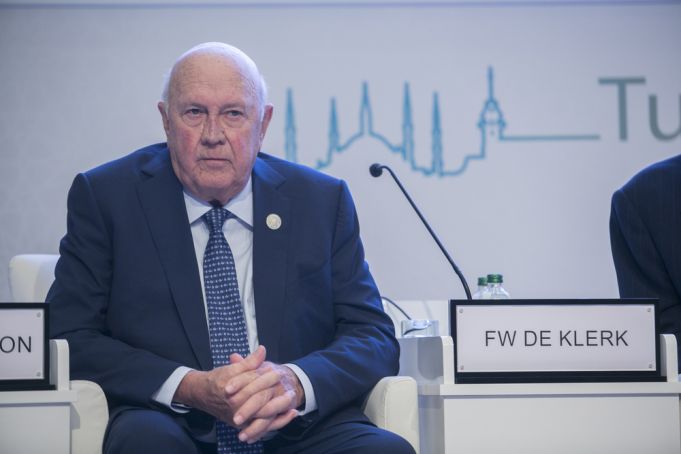A brief history of Apartheid in South Africa
Apartheid in South Africa was a direct result of racial inequality and imperialism in the 1900’s that led to extensive political, social, and economic struggles.
Translated from the Afrikaans meaning 'apartness', the National Party (NP) government’s apartheid ideology called for separate development of different racial groups in South Africa.
Apartheid laws forced different racial groups to live and develop separately, disadvantaging the majority of the nation’s population - who were not white.
Although on paper the legislation appeared to call for equal development and freedom of cultural expression, the implementation of these laws was grossly unequal.
The fractured post-apartheid South African society challenged by poverty, racism and violence can be better understood through the analyzation of several key figures and legislation. Brief Timeline of Main Acts establishing the apartheid state:
1948 - Policy of apartheid (segregation on a racial basis in society) implemented when National Party (NP) comes to power.
1949 - Prohibition of Mixed Marriages Act passed to ban the marital union of different races.
1950 - Population Registration Act passed. This demanded all South Africans register according to their racial group: White, Black or Coloured. (According to this act, Indians fell under the Coloured category).
1950 - Group Areas Act passed to residentially segregate blacks and whites. This included the removal of some groups of people who resided in areas set aside for alternative racial groups.
1961 - South Africa withdraws from the British Commonwealth and proclaims itself a Republic due to mounting international opposition.
1970s - Bantu Homeland Citizenship Act (1970) passed. More than 3 million people forcibly resettled in black ‘homelands’.
Resistance to apartheid came from all circles, and not only, contrary to public assumption, from those victimized by widespread discrimination.
Criticism also came from other countries, who would eventually support the South African freedom movements.
Some notable organizations who were involved in the struggle for liberation were the African National Congress (ANC), the Pan-Africanist Congress (PAC), the Inkatha Freedom Party (IFP), the Black Consciousness Movement (BCM) and the United Democratic Front (UDF).

Ph: mark reinstein / Shutterstock.com
Nelson Mandela, Oliver Tambo and Walter Sisulu were several key figures who championed strike action, protests and other forms of non-violent resistance within the ANC’s Defiance Campaign in the 1950’s. The campaign encouraged citizens to purposefully break apartheid laws and offer themselves for arrest.
Black citizens used ‘white buses’, ‘white toilets’ and ‘white areas’ until nearly 8,000 people ended up in jail. Despite the large scale effort, the ANC caused little threat to the apartheid regime. After decades of protest, and increasing international outrage, the pressure on the South African government for reform was mounting.
When F. W. de Klerk became president in 1989, he called for an apartheid free society. Klerk lifted the ban on protest marches, ended the racial segregation of public facilities and freed multiple ANC activists who were serving life imprisonment for conspiracy, one of whom was Nelson Mandela.

Ph: Tolga Sezgin / Shutterstock.com
After serving 27 years in prison, Mandela worked with Klerk to dismantle the apartheid regime. On April 27, 1994 the first muliracial elections held in South Africa since 1948 overwhelmingly voted Mandela into power.
Mandela’s administration emphasized reconciliation between the country’s racial groups and founded a Truth and Reconciliation Commission to combat past human rights abuses.
Also read:
Post-Apartheid, the nation continues to struggle with inequality, concerning crime rates and the brutal legacy of the apartheid system. Whites still hold much of the wealth and private power, which is the main subject of hundreds of modern protests every day.
Financial conflict and racial conflict are seemingly synonymous, as the war on corruption deepens public exasperation. Although many believe the African National Congress has lost its way since Mandela won the first post-apartheid election, Mandela himself is held in deep respect, where he is often referred to by the clan name Madiba, or “Father of the Nation”.
“Gracious but steely, [Mandela] steered a country in turmoil toward a negotiated settlement: a country that days before its first democratic election remained violent, riven by divisive views and personalities. He endorsed national reconciliation, an idea he did not merely foster in the abstract, but performed with panache and conviction in reaching out to former adversaries. He initiated an era of hope that, while not long-lasting, was nevertheless decisive, and he garnered the highest international recognition and affection.” —Rita Barnard, The Cambridge Companion to Nelson Mandela
Title ph: Gil.K / Shutterstock.com













